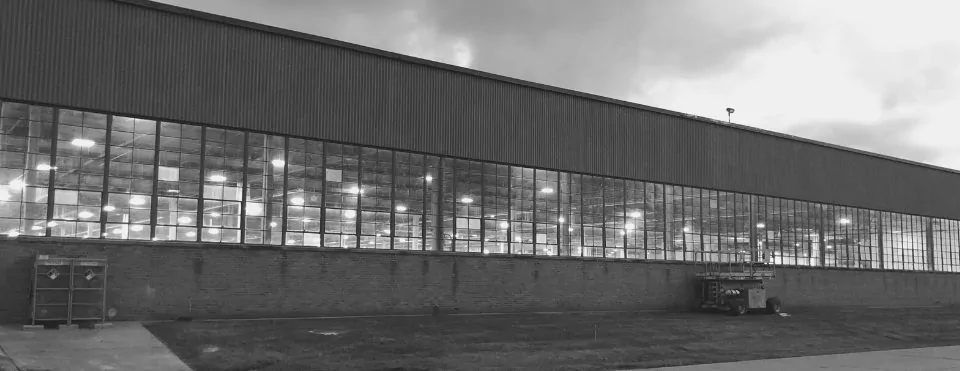Improving Energy Efficiency in Illinois Schools
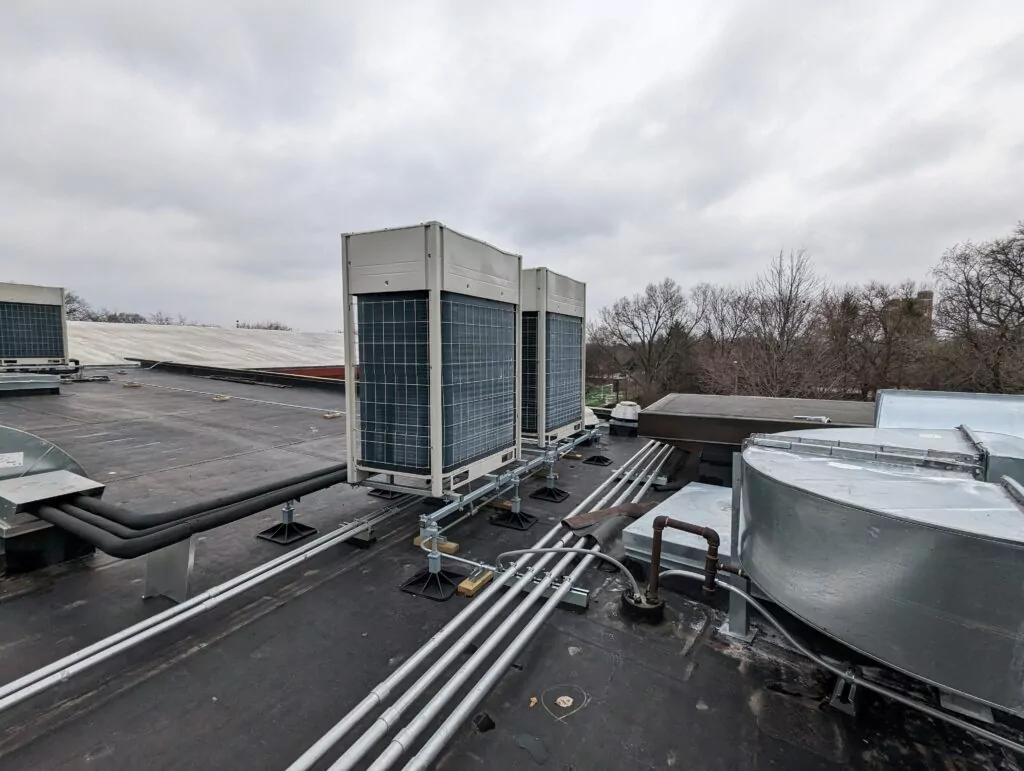
Nov 23 2023
A Comprehensive Guide
Schools across Illinois are facing mounting pressure to reduce their energy consumption and environmental impact. With rising energy costs and increasing concerns about climate change, schools are seeking ways to become more energy efficient without compromising the comfort and safety of their students and staff. School boards are also being forced to do more with less resources, and saving energy expenditures is a very popular way to achieve this goal.
Fortunately, school energy efficiency is fairly straightforward, and most of the technology already exists to meet these goals for our schools. And, there are huge benefits in addition to energy efficiency such as improved lighting for learning for students, better air quality and health outcomes, and safety. Most of these improvements start with an energy efficiency assessment or audit, which can be provided for free through your utility or a local partner like Verde. These typically can be done in a single day to get a good baseline of energy usage, lighting and HVAC baselines, control strategies, and trending costs for electricity and natural gas.
The Importance of Energy Efficiency in Schools
There are many compelling reasons for schools to invest in energy efficiency measures. These measures can help schools:
- Save money: By reducing energy consumption, schools can save significant amounts of money on their utility bills. These savings can be used to fund other important school programs and initiatives. Less money on energy means more money for direct education spending for students and teachers.
- Reduce their environmental impact: Schools are major consumers of energy, and their energy use contributes to greenhouse gas emissions and other environmental problems. By becoming more energy efficient, schools can help to reduce their environmental footprint. Schools are also not typically going anywhere – the same building can sometimes remain for 50 – 100 years, so any investment into improving that building pays dividends for generations of students.
- Improve the learning environment: Studies have shown that a comfortable and healthy indoor environment can improve student learning and performance. Energy-efficient measures can help to create a more comfortable and healthy learning environment for students and staff. There are a lot of studies that connect poor lighting or comfort to poor learning outcomes.
How Can Illinois Schools Become More Energy Efficient?
There are many things that Illinois schools can do to become more energy efficient. Some of the most effective measures include:
- Upgrade lighting systems: Replacing old incandescent and fluorescent lights with LED lights can save schools a significant amount of energy. LED lights are also more durable and last longer than traditional lights. They are also quieter and provide better lighting to make spaces better for learning and teaching.
- Improve HVAC systems: HVAC systems are one of the largest energy consumers in schools. By upgrading to more efficient HVAC systems and implementing proper maintenance procedures, schools can save a significant amount of energy. And, running a compressor or boiler less also means less wear and tear and future maintenance costs, in addition to the energy savings.
- Implement energy management systems: Energy management systems (EMS) or Building Automation Systems (BAS) can help schools to monitor and control their energy use. EMS and BAS systems can be implemented or improved to identify energy-saving opportunities and automatically adjust energy consumption based on occupancy and other factors.
- Educate students and staff: Educating students and staff about energy conservation can help to raise awareness and encourage behavioral changes that can save energy. Schools can also implement incentive programs to encourage energy-saving behavior.
Financial Assistance for Energy Efficiency Projects
The Illinois Department of Commerce and Economic Opportunity (DCEO) offers a variety of financial assistance programs to help schools implement energy efficiency projects. These programs can provide schools with grants, rebates, and low-interest loans.
Public and Private schools alike can participate in the Comed Energy Efficiency program, getting rebates to help offset the cost of the work they need to do to reduce energy. Lighting, HVAC and Control system incentives all exist and programs want and need to spend this money to help your school. Since there is a lot of research that goes into these programs on their savings – you can feel confident in the energy savings potential and calculations and share those with your board.
Do Public Schools or Private Schools Need to do Energy Efficiency Work
This is a trick question because both public and private schools need to do energy efficiency work.
Whatever school you work in, they all spend money on utility costs like electricity and natural gas. Some pay for the differently, either their own bill or a bill that is passed on to taxpayers. But all use utilities, and somehow they are paid for. Reducing that usage is good for the tax payers or private school boards and owners.
Private schools especially need to be competitive and no potential family wants to walk into a building with poor lighting or HVAC systems. It would show a lack of commitment to education – and make it difficult for them to spend money. Brighter lights, in our experience, leads to a better feeling when prospective students and parents enter a school. And a building that is too hot or too cold is also a clear sign to potential students that a building is not being maintained properly and they may conclude less investment in their child’s future.
Public boards have a greater responsibility to spend money in a thoughtful and impactful way, since they are tax payer dollars. Too often public schools do not do the work they need to do out of fear of Bidding or capital improvements. But holding off on moving forward only adds to the maintenance costs and puts off an eventual improvement in the schools lighting, HVAC or control system. And, today there is funding to help support these efforts and tomorrow there may not be – so it is important to be proactive on energy efficiency work.
Resources for Illinois Schools
There are a number of resources available to help Illinois schools become more energy efficient. These resources include:
- The Illinois Energy Efficiency Program: This program provides schools with information and resources on energy efficiency.
- The Illinois School Energy Efficiency Partnership: This partnership provides schools with technical assistance and financial support for energy efficiency projects.
- The Energy Efficiency Improvement Corporation of Illinois (EEIC): This organization provides schools with financing and other support for energy efficiency projects.
Advanced Energy Efficiency for Schools – Heat Pumps
Heat pumps are a viable and beneficial choice for schools in Illinois due to their numerous advantages:
Energy Efficiency: Heat pumps offer exceptional energy efficiency, consuming significantly less electricity than traditional heating and cooling systems. This translates into substantial cost savings for schools, allowing them to allocate resources to other important educational initiatives.
Environmental Friendliness: Heat pumps operate using electricity and ambient air or ground source, eliminating the need for fossil fuels like natural gas or propane. This significantly reduces their carbon footprint and contributes to a cleaner environment, aligning with the growing emphasis on sustainability.
Year-Round Comfort: Heat pumps provide both heating and cooling capabilities, ensuring a comfortable indoor environment for students and staff throughout the year. This versatility eliminates the need for separate heating and cooling systems, simplifying maintenance and reducing overall costs.
Improved Indoor Air Quality: Heat pumps act as air filters, removing dust, pollen, and other airborne contaminants from the indoor air. This leads to a healthier indoor environment, reducing the risk of allergies and respiratory illnesses among students and staff.
Government Incentives: The Illinois Environmental Protection Agency (EPA) offers rebates and incentives for businesses that install heat pumps. These incentives can significantly reduce the upfront cost of installing heat pumps, making them a financially attractive investment for schools.
Positive Impact on Learning: Studies have shown that a comfortable indoor environment can improve student learning and performance. Heat pumps help maintain a consistent and comfortable temperature throughout the school year, potentially contributing to enhanced academic outcomes.
Sustainability Education Opportunities: Installing heat pumps provides an excellent opportunity for schools to incorporate sustainability education into their curriculum. Students can learn about the technology, its environmental benefits, and how it contributes to a more sustainable future.
In summary, heat pumps offer numerous advantages for schools in Illinois, including energy efficiency, environmental friendliness, year-round comfort, improved indoor air quality, government incentives, and positive impacts on learning and sustainability education. As schools strive to reduce their energy consumption, minimize their environmental impact, and create a healthy and comfortable learning environment, heat pumps emerge as a compelling and sustainable solution.
BAS System Energy Efficiency in Schools
A Building Automation System (BAS) is a computer-based system that monitors and controls a building’s mechanical and electrical systems, such as HVAC, lighting, and fire alarms.
Building Automation System
A BAS can help save energy by:
- Optimizing HVAC operation: BAS systems can monitor and control HVAC systems to ensure that they are operating as efficiently as possible. This includes adjusting temperature setpoints, scheduling equipment to run during off-peak hours, and preventing equipment from running unnecessarily.
- Reducing lighting costs: BAS systems can control lighting systems to ensure that lights are only on when they are needed. This can be done by using occupancy sensors, timers, and daylighting controls.
- Identifying and fixing problems: BAS systems can monitor equipment performance and identify potential problems before they cause major breakdowns. This can help to prevent energy waste and costly repairs.
- Providing data for energy-saving measures: BAS systems can collect data on energy consumption, which can be used to identify areas for improvement. This data can also be used to track the progress of energy-saving initiatives.
- Improving occupant comfort: BAS systems can be used to control the temperature, humidity, and air quality in a building, which can help to improve occupant comfort. This can lead to increased productivity and reduced absenteeism.
In addition to the energy-saving benefits, upgrading the BAS system in your school can also lead to:
- Reduced maintenance costs: BAS systems can help to extend the life of equipment and reduce the need for maintenance.
- Improved safety: BAS systems can monitor fire alarms, security systems, and other safety-related equipment.
- Increased property value: A well-maintained BAS system can increase the property value of a school.
The cost of upgrading a BAS system will vary depending on the size and complexity of the school. However, the energy-saving benefits can often offset the initial cost of the upgrade.
Here are some tips for upgrading the BAS system in your school:
- Get quotes from several different vendors: Make sure to get quotes from several different vendors before making a decision.
- Choose a system that is compatible with your existing equipment: Make sure to choose a BAS system that is compatible with your existing HVAC, lighting, and fire alarm systems.
- Get training on how to use the system: Make sure to get training on how to use the BAS system so that you can take full advantage of its features.
- Monitor your energy consumption: Monitor your energy consumption before and after upgrading the BAS system to see how much energy you are saving.
- Use the BAS system to identify and fix problems: Use the BAS system to identify and fix problems with your HVAC, lighting, and other systems.
Upgrading the BAS system in your school can be a great way to save energy, improve comfort, and reduce costs. Retrocommissioning an existing BAS system can save a lot of energy by simply adjusting set points of a system.
Energy Recovery Ventilator in Schools
Fresh air for schools is incredibly important. Most schools provide fresh air through traditional ways, and that incoming air needs to be heated or cooled first before entering the schools.
However, energy recovery ventilators are an improving technology that pull the energy out of outgoing air, and place it directly into incoming air. On a very cold or hot day, the energy passively moves across a heat exchanger and significantly reduce the energy required to heat and cool a building. They often due this with very simple and low energy fans that move the air and let the engineering design do the rest. In addition to saving energy – these can provide far more fresh air for students and staff – reducing illness and slowing the spread of germs. We know that fresh air is important to keeping us safe in our modern world, and ERVs do this while saving energy.
Implementing Energy Efficiency in Schools
By implementing energy efficiency measures, Illinois schools can save money, reduce their environmental impact, and create a more comfortable and healthy learning environment for their students and staff. With the help of available resources and financial assistance, schools can overcome any challenges they may face in implementing energy efficiency projects.
If you want to start with a simple energy efficiency assessment for your school and your are in Illinois or Wisconsin, please reach out to us at (773) 413-9587 or fill out our free assessment form request to get started. We helped hundreds of schools reduce their energy burden, and it all starts with a baseline audit to get started.
Featured Posts
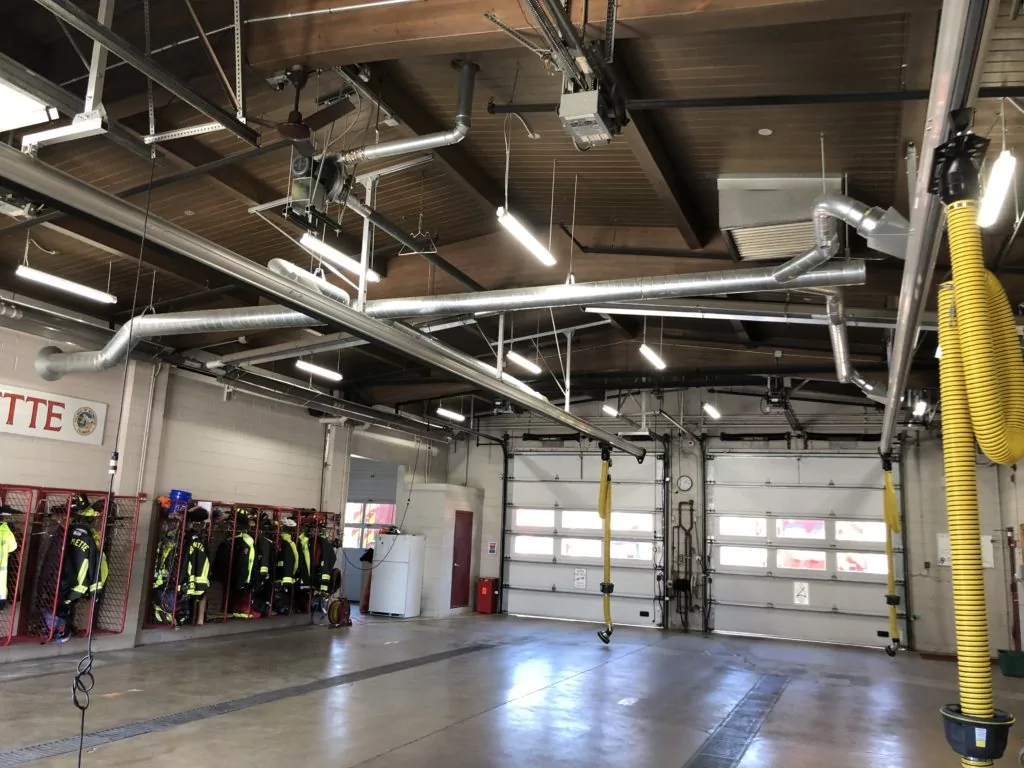
Mar 15 2021
Energy Savings Formula
In 2002, I became a firefighter in the north suburbs of Chicago. I was young and idealistic - loving almost every part of the job. However, I had another secret passion - sustainability. In addition…
Continue Reading >

May 02 2019
Verde Energy Efficiency Experts 10 Most Sustainable Companies in Chicago
In our energy efficiency consulting firm, we constantly look for inspiration from local companies that lead and innovate in clean energy and sustainability. Not all companies have billion dollar budgets, but that doesn’t mean that…
Continue Reading >
Related Articles
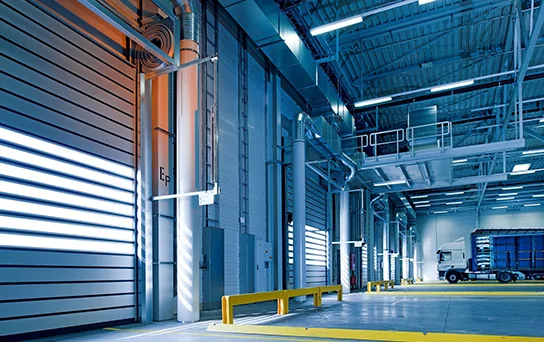
Mar 31 2025
Cut Warehouse Costs With Proven Commercial Energy Efficiency Upgrades
Warehouse operators are relentlessly pursuing smarter ways to reduce costs, increase workplace safety, and improve commercial energy efficiency. But what’s the best way to achieve this? As experts in commercial energy efficiency, Verde has the answers.…
Continue Reading >
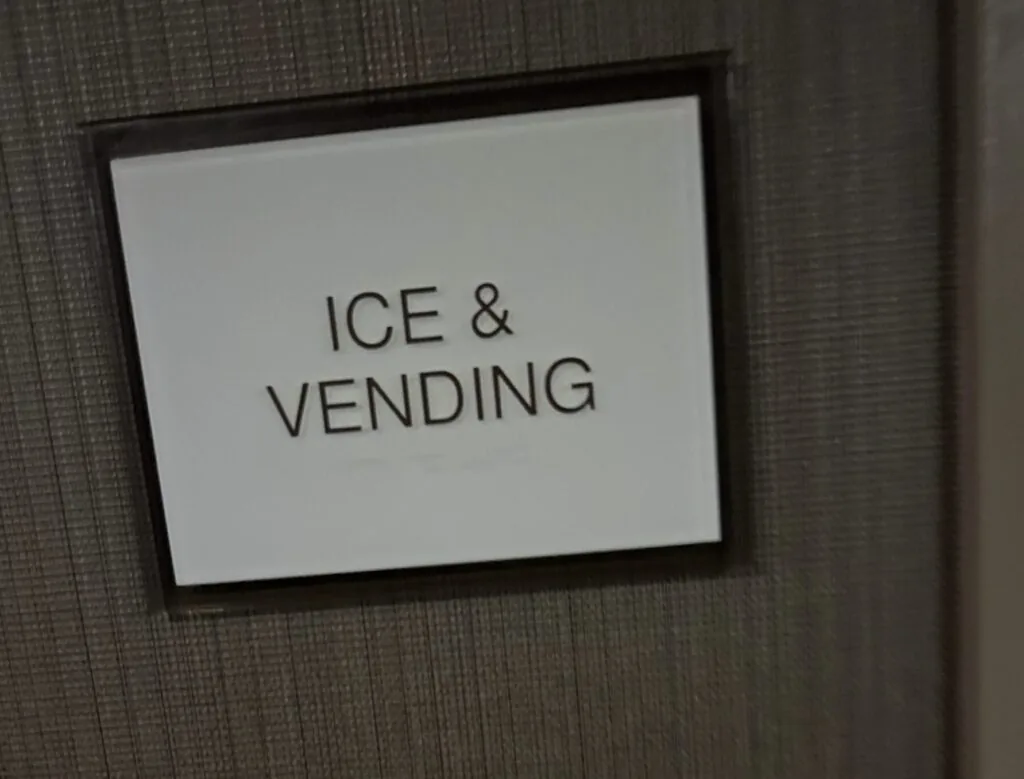
May 08 2024
Decarbonizing Hotels – Is it Possible?
Lower Energy Cost Hospitality with Decarbonization Hotels are huge energy users - with a lot of guests that come and go quickly, keeping them comfortable is no small task. As we look ahead at decarbonization…

